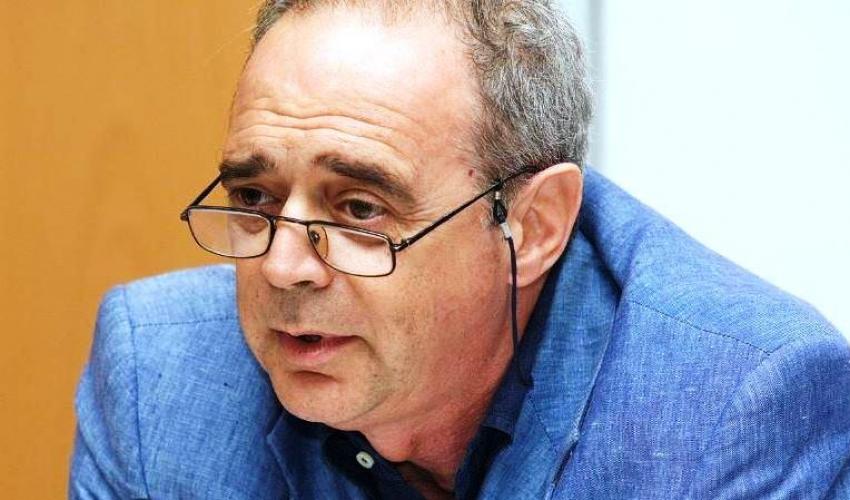
Violent, But Not Because They're Muslim
ISIS AND BOKO HARAM'S MURDEROUS ACTIONS HAVE MORE IN COMMON WITH THE ETHNIC CLEANSING PERPETRATED BY CHRISTIAN PARAMILITARIES IN FORMER YUGOSLAVIA THAN THE ACTIONS OF PALESTIANIAN SUICIDE BOMBERSby Ugo Fabietti, Dept.of Policy Analysis and Public Management, Bocconi
Translated by Alex Foti
The spectacularization of cruelty, actively sought by politico-military movements acting in the name of radical Islam, has brought to the fore once again the thorny issue of the relation between religion and violence. The nexus between the two is no novelty in human history, since people have slaughtered each other in the name of religion for centuries. However the latest mediatization of ritual killings has given new life to the idea that there is a strong connection between Islam and violence.
Such a relationship is posited on the basis of emotion, if not political manipulation, rather than reasoned reflection. The gratuitous violence perpetrated by ISIS militiamen or other paramilitary formations has little or nothing to do with the Palestinians who started launching kamikaze attacks against Israeli military and civilian targets two decades ago.
Those individuals knew they would go to their deaths in the name of a cause, while ISIS’s ferocious acts do not endanger the lives of those who perpetrate them. Even when you read about suicide bombings promoted by ISIS (mostly against other Muslims), those blowing themselves up are not really militants of the movement, and their identities and motivations remain uncertain.
Conversely, we know rather well the personal stories of the Palestinian terrorists/martyrs, their biographies, their thoughts, and strategies. The Western public, due to simplification by the media, is unable to distinguish among various manifestations of political violence. In fact, the idea that these violent acts are “religiously inspired” has always been in the background of Western media and political discourse, while scholars have proposed a variety of more nuanced interpretations.
For a moment, let’s take at face value the claim that religion really had a role in all this. Not to underplay other socio-political factors, but rather to understand if and how religion plays a role in terms of the symbolic exchange through which the perpetrators establish a relation with their audience, and claim their superior authority.
Those who think that religion has something to do with these acts of violence can be roughly divided in two camps: those who think that suicide killings are inspired by a violent message which is supposedly intrinsic to the Muslim religion, something which would be pretty hard to prove; those who instead think that religion, either Muslim or generically monotheistic, has a role in articulating and expressing the imagery and praxis of violence. Political analysts and commentators openly hostile to “all things Islamic” usually belong to the former camp. They tend to cultivate those that Charles Taylor and Dilip Gaonkar define as “block thinking”, an attitude which in anthropology goes under the rubric of “the essentialization of culture”.
In the latter camp, Ivan Strenski instead thinks that terrorist/martyrs accomplish an act that is political and religious at the same time. This merging of politics into religion is achieved through an elaborate code of sacralization of the future martyr, and the activation of the logic of gift.
Suicidal attackers ask their communities to be accepted as representatives of a higher authority. The consecration of martyrs is the ritual process which creates the symbolic conditions for the acknowledgment of their authority: prayers, readings from the Quran, recitation of episodes from the life of the Prophet etc. What captures and morally obliges the public to acknowledge the martyrs’ position is the translation into practice of the gift logic. According to such logic, which according to classical anthropology is based on the intertwined obligations of giving – accepting – giving back, a feeling of mutual obligation is engendered in the public mind. On the one hand, the duty to accept the gift of their heroic deaths in an appropriate manner, i.e. by nurturing into people the notion that they must give something back in return. This is done by strengthening positive interpretations of the acts of martyrdom, because they’re intimately linked to the higher ideal that has made martyrs sacrifice their lives. According to this logic, suicide bombers give their lives to achieve a higher level of meaning and consciousness experienced by their communities. Strenski calls this dynamic “addition by subtraction”, and it commits the community of reference to struggle unremittingly for “the cause”.
This dynamic, built on the process of consecration and logic of gift, takes on different meanings according to context and targets chosen: Israeli military and civilians, Western military (“invaders”) or Western civilians (“infidels/ imperialists”), but also Muslims belonging to a different confession. In all these cases, suicide bombers seek their acknowledgment as sources of political and religious authority before their own communities. Even when it’s Muslim factions fighting each other, suicidal acts of destruction have the aim of “upping the ante” in the competition for the higher moral (religious) ground with the enemy.
These acts, which are deeply rooted in the idea of self-sacrifice as an altruistic act to increase one’s power in the face of the enemy, have the objective of making those who are sacrificing themselves for a cause acquire an incontestable authority in the eyes of their own community. This can either Islam, Palestine, the Shia community, or, conversely, the Sunni community.
The logic of martyrdom is thus not relevant to understand the extreme violence staged and webcasted by “Islamist” politico-military movements such as ISIS or Boko Haram, which has more in common with the violence inflicted by “Christian” militias against Muslim populations in Bosnia during the war in former Yugoslavia.
